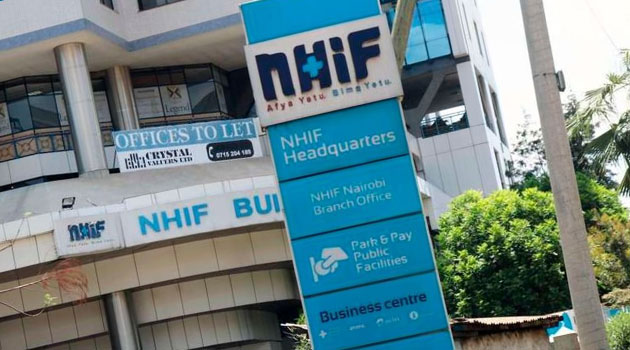
Government’s Sh25bn Debt to Defunct NHIF Stalls Payments to Hospitals » Capital News
NAIROBI, Kenya, Feb 10 – Unpaid government premiums totalling Sh25 billion owed to the defunct National Health Insurance Fund (NHIF) have stalled the clearance of Sh30.9 billion in outstanding payments to hospitals and insurance providers.
Medical Services Principal Secretary Harry Kimutai told the National Assembly Health Committee that the Social Health Insurance Authority (SHA) inherited significant debts from NHIF, worsening its financial position. He said the delayed payments have disrupted service provision and placed pressure on both public and private health institutions relying on timely disbursements.
The Ministry of Public Service holds the largest share of the debt, owing Sh15.5 billion, broken down as Sh3 billion for civil servants’ medical cover and Sh12 billion under the Workman Injury Benefit Act (WIBA) compensation scheme. The Ministry of Health owes Sh8 billion, covering unpaid services under programs such as Linda Mama, Primary Health Care, and emergency, chronic, and critical illness services. The Ministry of Interior and National Coordination has Sh1.6 billion in outstanding premiums for National Police Service staff.
Lawmakers raised concerns about the Sh12 billion WIBA claims, questioning their legitimacy after revelations that some payments lacked formal contracts. SHA Acting CEO Robert Ingasira admitted that Sh3.9 billion in WIBA claims made before April 2021 were processed based on an informal agreement between NHIF and state departments. He said they had validated the contracts, but there was no formal contract. There were instructions from the then Cabinet Secretary that NHIF receive, validate, and compile the claims while awaiting funding.
Documents presented to the Robert Pukose-led committee revealed that NHIF only signed formal WIBA contracts with two state departments in April 2021. The fund then subcontracted co-insurers, including Jubilee and Britam, with Sh8.1 billion still owed to insurers.
Lawmakers raised concerns over the funding mechanisms and contractual framework between NHIF and the government. Seme MP James Nyikal questioned whether the discussion was about money NHIF was owed or the money it owed service providers. Nandi Woman Representative Cynthia Muge sought clarity on whether the outstanding amount was government debt to SHA/NHIF or NHIF’s debt to service providers.
Nyeri Town MP Duncan Mathenge also questioned why Sh3.9 billion in WIBA claims, submitted directly by civil servants to the Ministry of Public Service, were listed as NHIF debts. He argued that NHIF did not have a contract with the ministry, and the ministry never remitted money to NHIF, so the amount should not be recorded under NHIF’s books.
Under WIBA, the State Department of Public Service and the State Department of Interior entered into an agreement with NHIF to provide group life cover, WIBA benefits, and GPA for National Police Service (NPS) members. Compensation under WIBA is structured as salary continuation or a lump sum, based on an employee’s annual gross salary.
For permanent disability, a member receives one year’s basic salary multiplied by the awarded disability percentage. In cases of death, illness, or injury from work-related incidents, an officer is entitled to compensation of eight years’ gross salary.
With NHIF’s financial standing in turmoil, questions remain on how the government will resolve the mounting debt and restore stability to the country’s health insurance framework.